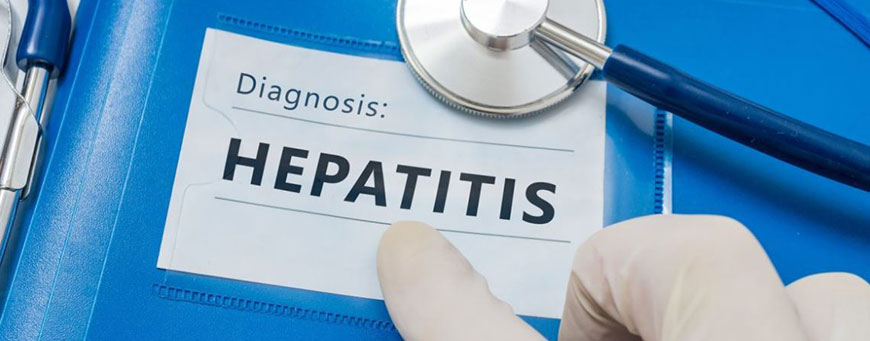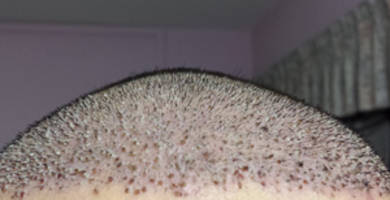Can I get a hair transplant having Hepatitis C?
By Prof. Dr. Soner Tatlidede 2020-04-13

Can I get a hair transplant having Hepatitis C? This is an important question since Hepatitis C is a contagious disease caused by HCV virus, and another person can become infected through contact with the blood of a person with Hepatitis C. Therefore, all precautions must be taken to avoid any possible contagion.
Hepatitis C is a very serious disease. If you are interested in the cost of a hair transplant in Turkey or you wish to get such kind of operation, in this article we aim to give a precise answer to all questions related to this disease, including how it affects hair loss, what are the possibilities for a hair transplant if you have Hepatitis C, and how is the procedure done in these cases.
Table of contents
- Can Hep C cause your hair to fall out?
- Who is at risk for Hepatitis C?
- Can I get a hair transplant if I have an active or untreated Hepatitis C?
- Can I get a hair transplant if I have a cured or treated Hepatitis C?
- What kind of test is done to detect Hep C?
- What happens when the result of this test is positive?
- Why if a patient is cured, basic tests indicate presence of a disease?
- How much does additional test cost?
- Why test duration may change?
- Will the disease affect hair transplant and healing process?
- How many days do I need to get a hair transplant if I have Hepatitis C?
Can Hep C cause your hair to fall out?
Our liver has the important task of breaking down toxins and helping our body to eliminate them; so, when it doesn´t work properly due to the effects of Hep C, or because of the treatments against the disease, toxins build-up in our body and all necessary nutrients have more difficulties to reach the cells. All these Hepatitis C related problems can manifest as deficiencies in tissues such as skin or hair, because they won't be able to repair themselves.
So, the answer to the question "Does Hepatitis C make you lose your hair?" is yes, it may cause hair loss. Also, some medications used for treating Hepatitis C virus can trigger changes in our hair, or even hair fall out. However, usually these side effects are temporary and your hair will return to normal once the treatment is over.
Who is at risk for Hepatitis C?
The risk of infection with the Hepatitis C virus (HCV) is increased if you:
- Have unprotected sex with more than 1 partner.
- Have or had an STD (sexually transmitted disease)
- Had hemodialysis (your blood filtered by a machine)
- Work in contact with infected blood or needles
- Had tattoos using unsterile types of equipment
- Shared needles to inject drugs with others.
Can I get a hair transplant if I have an active or untreated Hepatitis C?
Since Hepatitis C is a contagious disease, we must be sure that no one will be infected; we care about the safety of our medical team and of our clients. Besides, performing hair transplant procedures while HCV is active or untreated might be a great risk of infection to the patient himself. Also, the transplanted area might become infected, causing the operation not to be successful.
Therefore, we never do hair transplants or any aesthetic surgery if the patient’s test on Hepatitis C is positive and the disease is untreated. That is, if our patient has active Hepatitis C, unfortunately we cannot perform the hair transplant procedure.
At the very beginning, during the first online consultations, we always ask our patients about the possibility of Hepatitis. This is a very important information, since if the patient has active Hepatitis C the hair transplant will be cancelled. We never start the procedure until we are sure that the patient does not have any infectious diseases.
Upon arrival in Istanbul, a blood sample is given for testing in our hospital. The blood count is checked and, among others, we seek if the virus of Hepatitis is present. If the patience has Hepatitis C and hides or ignores this important information, the procedure will be cancelled and the patient would have come to Istanbul for nothing. We highly advice all our patients to make blood test and check STD, so that they can be sure about their health before travelling to Istanbul.
Can I get a hair transplant if I have a cured or treated Hepatitis C?
Patients who had hepatitis C disease in the past will always have antigens against this virus in their blood. In this situation, the hair transplant is possible but it is very important to save more time and come to Istanbul minimum 5 days before the procedure. During this time, an additional blood test is performed, so that we can have 100% certainty about the presence or absence of the disease.
What kind of test is done to detect Hep C?
The test that we do to rule out the presence of HCV is called Hepatitis C Antibody, anti-HCV test. This is the basic test to detect the presence of antigens against HCV. At the very beginning, an immunochemical technique is used to detect HCV incidence.
This test involves detecting antigens against HCV (anti-HCV). Antigens are detected from the patient's serum or plasma. If after receiving the result it turns out to be reactive -that is, positive- it would be necessary to perform another, more thorough examination.
What happens when the result of this test is positive?
If the result of anti-HCV test is positive, it is necessary to perform an additional HCV PCR or HCV RNA test, which will exclude the presence of an active version of the disease. This second test takes a little longer time than the antigen detection test, due to the fact that it is quite a complicated examination.
This test is based on the detection of virus RNA in the blood. RNA virus can be compared to human DNA; if virus RNA molecules are detected in the blood, this indicates an active form of the disease. To perform the test, blood sample is placed in a special machine, and the duration of the test depends on it: sometimes the waiting time for test results is longer. As a result, the day when the transplant operation will be finally done may also change.
Why if a patient is cured, basic tests indicate presence of a disease?
This is because the antigens produced during the disease stay in your blood for the rest of your life. The basic test that we do for each patient is a test that detects HCV antigens in the patient's blood.
Antigens are proteins that are formed during the body's immune response: they are proteins directed against the virus. For this reason, when the patient has or had hepatitis C, antigens against HCV are present in his body for the rest of his life, and the test result is always positive.
How much does additional test cost?
Basic anti-virus detection test is included in the package price. However, if the result is positive, it will be necessary to perform the additional HCV RNA test, which costs 200 euros.
A patient who had hepatitis C in the past must come to Istanbul 5 days earlier. Before performing the hair transplant procedure, we have to be sure about each patient's condition. Besides, we do not accept tests carried out and brought from another country.
Why test duration may change?
HCV RNA test takes longer time because we put blood sample in our laboratory into a special device that checks by itself for the presence of the virus. Due to the fact that the test result depends only on the machine performance, we cannot determine the exact date when the test will end.
Will the disease affect hair transplant and healing process?
If you have an inactive form of Hepatitis C, do not worry: patients with an inactive form of the disease do not have the slightest problem with performing the hair transplant procedure. It will not affect neither the procedure nor the healing process.
Please, note that we are not responsible of the possible consequences if you hide or you don’t know about having a positive/active Hepatitis C.
How many days do I need to get a hair transplant if I have Hepatitis C?
If you have a treated Hepatitis C, a total of 6 days will be necessary to have the results of the extra HCV PCR test and get a hair transplant surgery in Istanbul. The overall procedure would be as follows:
- Arrival to Istanbul: on Sunday or Monday very early in the morning.
- Blood test: the patient has to be in our hospital on Monday morning at 9:00 am (no tests accepted after 10:00 am)
- Result of the HCV PCR test: we will have the result of the extra test on Wednesday evening or Thursday morning.
- Hair transplant operation: Everything now depends on how much time the test will take to be performed, but there is no problem to perform the surgery that same day. However, it is also possible that the test will end on Thursday: in this case, the procedure will be performed on the same Thursday or on Friday at most.
- Travel back to your country: on Saturday, post op control and removing of the bandage will be carried out. That day, in the afternoon, you will be able to go back home.
Therefore, a 6 days journey from Sunday to Saturday will be perfect to be able to get a hair transplant in Turkey if you have a treated or undetectable Hepatitis C. If you provide us with all the necessary information, at Clinicana we can give you the best available solution for your situation: trust us, as thousands of satisfied customers have already done. Take a look at the reviews on hair transplant in Turkey, and ask now for your free consultation online.









